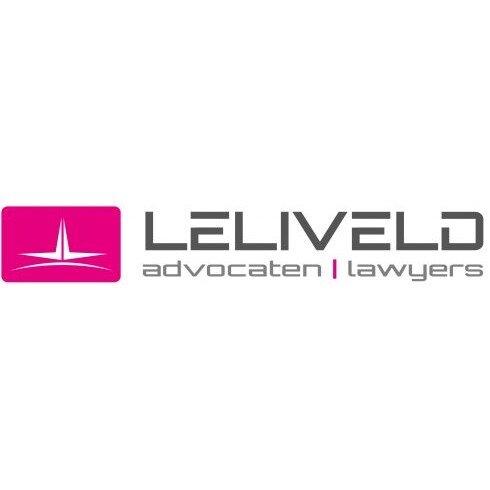Best Employment Benefits & Executive Compensation Lawyers in Netherlands
Share your needs with us, get contacted by law firms.
Free. Takes 2 min.
Or refine your search by selecting a city:
List of the best lawyers in Netherlands
About Employment Benefits & Executive Compensation Law in Netherlands
Employment Benefits & Executive Compensation law in the Netherlands is a specialized field that focuses on the legal aspects of compensation, benefits, and perks provided to employees, including executives. This area of law addresses the structure and regulation of financial and non-financial rewards that employees receive, such as salaries, bonuses, stock options, pensions, health benefits, and severance packages. Given its complex nature, it often intersects with tax law, contractual obligations, and employment regulations. Understanding and navigating these laws is crucial for both employers and employees to ensure compliance with statutory requirements and to protect their rights and interests.
Why You May Need a Lawyer
There are various situations where individuals or companies may require legal assistance with employment benefits and executive compensation. These include:
- Negotiating executive employment contracts and compensation packages.
- Managing changes to employee benefits plans or pension schemes.
- Addressing disputes related to bonuses, stock options, or other incentives.
- Ensuring compliance with Dutch laws and regulations on employee benefits.
- Understanding tax implications of different compensation arrangements.
- Handling mergers and acquisitions which involve complex compensation transitions.
- Advising on the impact of restructuring or downsizing on employee benefits.
Local Laws Overview
The Netherlands has a well-defined legal framework governing employment benefits and executive compensation. Key aspects include:
- Working Conditions Act: Mandates minimum standards for working conditions, impacting benefits related to employee well-being.
- Collective Bargaining Agreements (CBAs): In many sectors, CBAs play a crucial role in defining benefits and compensation structures for employees.
- Pension Schemes: Strict regulations oversee how pension benefits are structured and managed, ensuring financial security for employees post-retirement.
- Tax Laws: Taxation impacts the value of various benefits, making it essential to structure compensation packages efficiently.
- Severance Packages: Legal provisions under the Dutch Civil Code dictate severance pay terms, requiring careful consideration during employment termination.
Frequently Asked Questions
What are the typical components of an executive compensation package in the Netherlands?
A typical package may include a base salary, bonuses, long-term incentive plans, stock options, severance agreements, retirement plans, and additional benefits like company cars or housing.
How are bonuses regulated in the Netherlands?
Bonuses are subject to agreements outlined in individual contracts or CBAs. Performance-based bonuses are common, and they must comply with both contractual obligations and financial regulation standards.
Are employee stock options taxable in the Netherlands?
Yes, employee stock options are generally considered a taxable benefit. The timing of taxation depends on when the options are exercised or sold.
Does Dutch law mandate employers to provide pension plans?
While not universally mandatory, many collective agreements and industry standards do require employers to provide pension plans. Additionally, specific industries may have compulsory pension arrangements.
What protections do employees have if their benefits are reduced?
Employees are protected by contract law and, in some cases, CBAs. Any unilateral reduction in benefits without employee consent could be challenged legally.
How do mergers and acquisitions affect employee benefits?
Mergers and acquisitions often require careful reevaluation and integration of employee benefit schemes, and legal advice is usually needed to comply with both existing contracts and employment regulations.
Can expatriates working in the Netherlands access local employment benefits?
Yes, expatriates can access employment benefits, though their specific eligibility and benefits may vary based on their contract terms and duration of stay.
Is health insurance mandatory in Dutch employment packages?
Health insurance is compulsory for all residents, including expatriates working in the Netherlands. Some employers may offer it as part of a benefits package.
What happens to employee benefits during company bankruptcy?
In bankruptcy, employee claims have high priority, but the outcome varies based on the company’s financial situation and legal proceedings.
How are employment disputes regarding benefits resolved?
Employment benefit disputes can be resolved through negotiation, mediation, arbitration, or litigation, and often require specialized legal expertise.
Additional Resources
Individuals seeking assistance can benefit from the following resources:
- Ministry of Social Affairs and Employment: Provides guidelines and support on employment-related matters.
- Netherlands Bar Association: Offers a directory of professional lawyers specialized in employment law.
- Trade Unions: Often provide legal advice to members on employment rights and benefits.
- Pension Registers: Offer detailed information on pension rights and fiduciary arrangements.
Next Steps
If you require legal assistance in employment benefits and executive compensation, consider the following steps:
- Review your employment contract, company policies, and any applicable CBAs.
- Identify specific issues and gather relevant documents and correspondence.
- Consult with a specialized employment lawyer to understand your rights and options.
- Engage in negotiation or mediation, if feasible, to resolve disputes amicably.
- Consider formal legal action if necessary and as advised by your legal counsel.
Lawzana helps you find the best lawyers and law firms in Netherlands through a curated and pre-screened list of qualified legal professionals. Our platform offers rankings and detailed profiles of attorneys and law firms, allowing you to compare based on practice areas, including Employment Benefits & Executive Compensation, experience, and client feedback.
Each profile includes a description of the firm's areas of practice, client reviews, team members and partners, year of establishment, spoken languages, office locations, contact information, social media presence, and any published articles or resources. Most firms on our platform speak English and are experienced in both local and international legal matters.
Get a quote from top-rated law firms in Netherlands — quickly, securely, and without unnecessary hassle.
Disclaimer:
The information provided on this page is for general informational purposes only and does not constitute legal advice. While we strive to ensure the accuracy and relevance of the content, legal information may change over time, and interpretations of the law can vary. You should always consult with a qualified legal professional for advice specific to your situation.
We disclaim all liability for actions taken or not taken based on the content of this page. If you believe any information is incorrect or outdated, please contact us, and we will review and update it where appropriate.
Browse employment benefits & executive compensation law firms by city in Netherlands
Refine your search by selecting a city.














